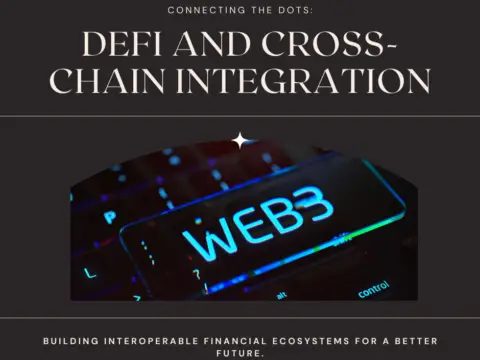The decentralized finance (DeFi) movement has disrupted traditional financial systems, and within this ecosystem, decentralized exchanges (DEXs) have emerged as key players reshaping the landscape of crypto trading. By offering users greater control, enhanced security, and increased financial inclusivity, DEXs represent a pivotal shift in the dynamics of cryptocurrency exchanges.
Eliminating Intermediaries: Centralized exchanges (CEXs) have long been the primary platforms for crypto trading, but they come with inherent risks such as hacking vulnerabilities and custodial control of users’ funds. DEXs, on the other hand, operate without intermediaries, allowing users to trade directly from their wallets. This decentralized model reduces the risk of hacks targeting a central point of failure and eliminates the need for users to trust a third party with their assets.
Enhanced Security through Smart Contracts: DEXs leverage smart contracts, self-executing contracts with the terms directly written into code, to facilitate and automate trading processes. These smart contracts, deployed on blockchain networks, enhance the security of transactions by ensuring that trades are executed as programmed, eliminating the risk of manipulation or fraud. Users retain control of their private keys, further safeguarding their assets.
Increased Financial Inclusivity: Traditional finance systems often exclude individuals without access to a bank account or those in regions with limited financial infrastructure. DEXs, being decentralized and operating on blockchain networks, provide an inclusive environment where anyone with an internet connection can participate in crypto trading. This is particularly impactful for the unbanked and underbanked populations, offering them access to global financial markets.
Global Accessibility and 24/7 Trading: DEXs operate on blockchain networks, enabling global access to crypto markets without restrictions imposed by traditional financial systems. Additionally, the decentralized nature of these exchanges allows for 24/7 trading, removing the limitations associated with market hours and time zones. Users have the flexibility to trade at any time, contributing to increased liquidity and market activity.
Liquidity Pools and Yield Farming: DEXs introduce innovative features such as liquidity pools and yield farming, providing users with opportunities to earn passive income. Liquidity providers can deposit their assets into pools, contributing to the overall liquidity of the exchange, and, in return, receive a share of the trading fees. Yield farming involves users staking their assets to earn additional tokens, creating novel ways for participants to maximize returns.
Challenges and Considerations: Despite their advantages, DEXs face challenges such as lower liquidity compared to centralized counterparts, potential vulnerabilities in smart contracts, and regulatory uncertainties. Users must exercise caution, conduct due diligence, and be aware of the risks associated with trading on DEXs.
Conclusion: Decentralized exchanges are at the forefront of the DeFi revolution, offering users a paradigm shift in how they engage with cryptocurrencies. As these platforms continue to evolve, addressing challenges and incorporating user feedback, they are likely to play an increasingly significant role in shaping the future of crypto trading. The principles of decentralization, security, and inclusivity embedded in DEXs align with the broader ethos of the crypto space, paving the way for a more accessible and resilient financial ecosystem.




